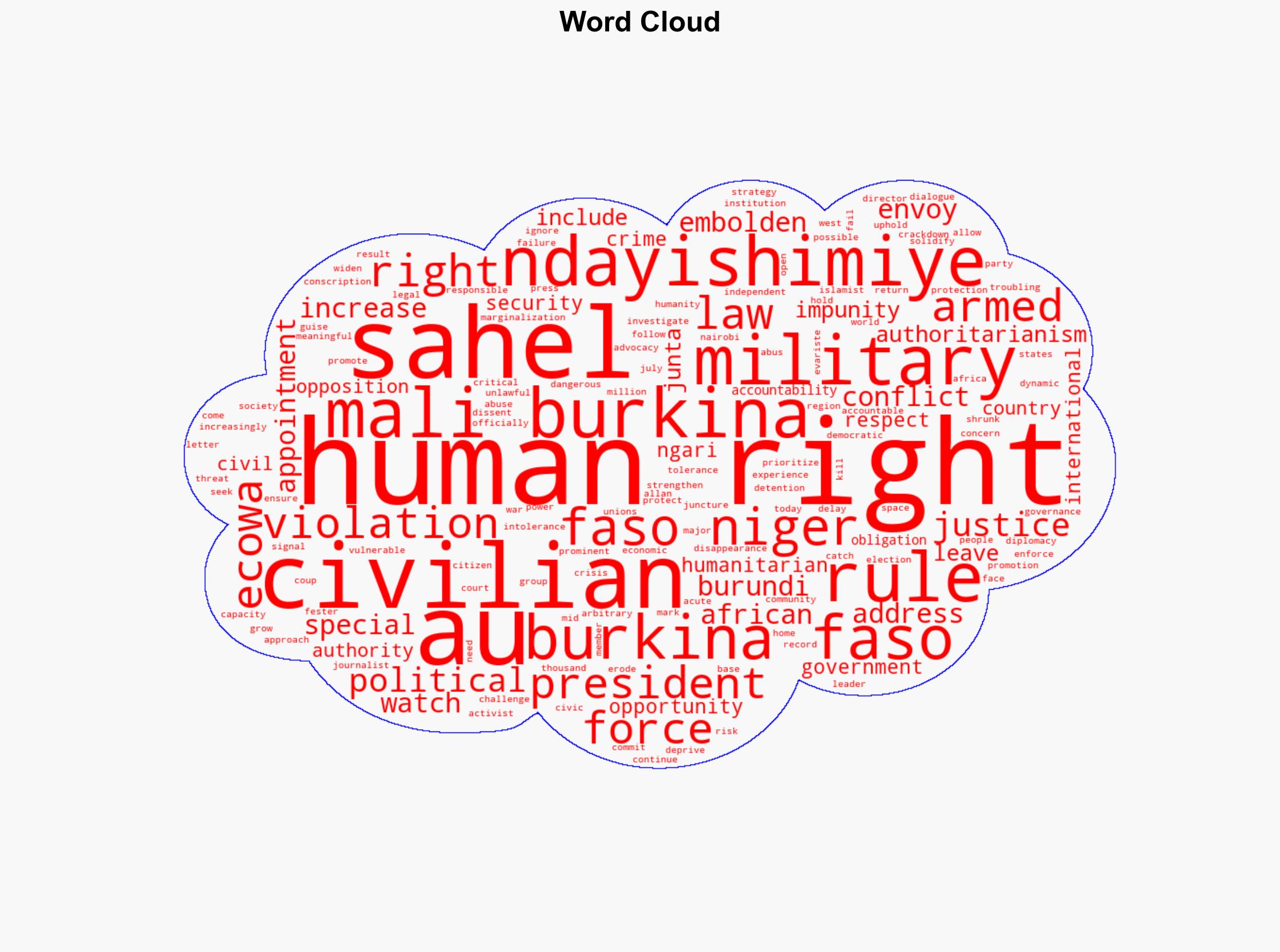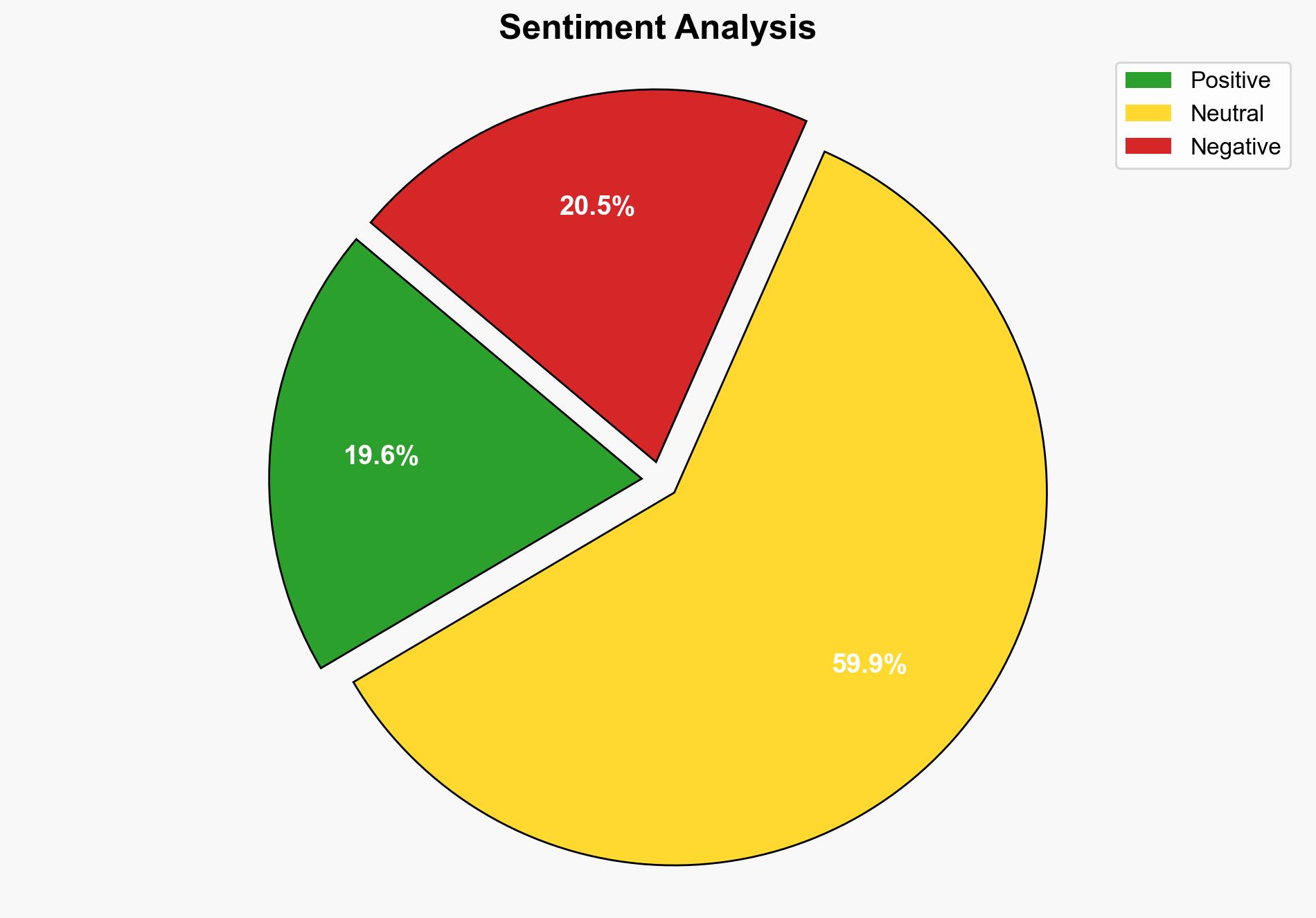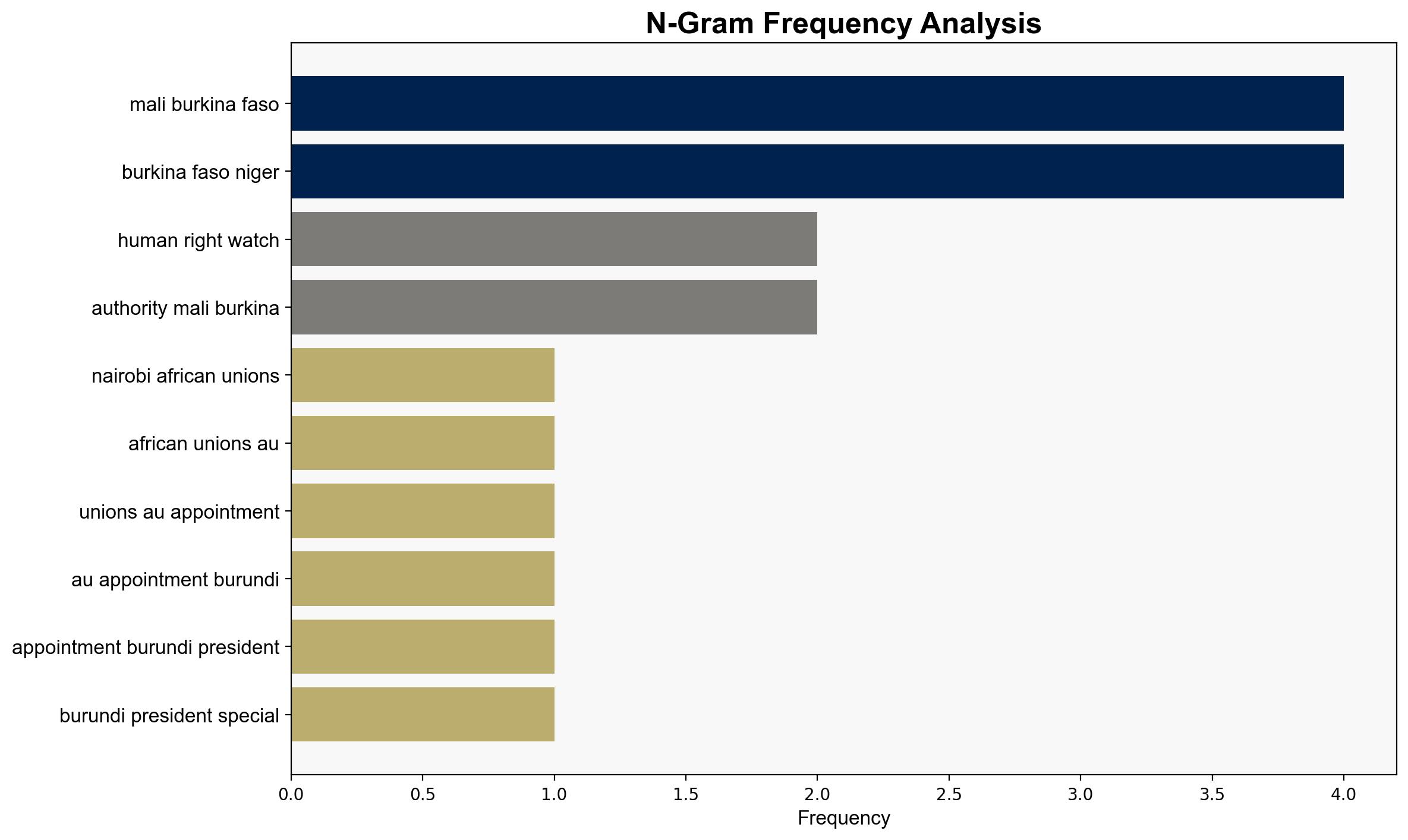Sahel Region African Union Appoints Special Envoy – Human Rights Watch
Published on: 2025-07-25
Intelligence Report: Sahel Region African Union Appoints Special Envoy – Human Rights Watch
1. BLUF (Bottom Line Up Front)
The appointment of Evariste Ndayishimiye as the African Union’s special envoy to the Sahel region presents both a strategic opportunity and a significant risk. The most supported hypothesis suggests that this appointment could enhance diplomatic engagement and human rights advocacy in the region. However, given Burundi’s own human rights record, there is a risk of perceived tolerance for authoritarianism. Confidence Level: Moderate. Recommended Action: Monitor the envoy’s actions closely and support initiatives that promote transparency and accountability.
2. Competing Hypotheses
Hypothesis 1: The appointment of Evariste Ndayishimiye will strengthen the AU’s capacity to address human rights challenges in the Sahel by fostering dialogue and promoting accountability.
Hypothesis 2: The appointment may inadvertently signal a tolerance for authoritarian practices, undermining efforts to promote human rights and democracy in the Sahel.
Using Analysis of Competing Hypotheses (ACH), Hypothesis 1 is better supported due to the AU’s stated intentions and the strategic need for enhanced engagement in the Sahel. However, Hypothesis 2 cannot be dismissed given Burundi’s human rights record and potential for diplomatic missteps.
3. Key Assumptions and Red Flags
Assumptions include the belief that the AU’s appointment will lead to tangible improvements in human rights. A red flag is the potential bias in assuming that Ndayishimiye’s leadership will align with AU’s human rights objectives, given Burundi’s history. Inconsistent data includes the lack of specific strategies outlined by the AU for the envoy’s role.
4. Implications and Strategic Risks
The appointment could either enhance or undermine the AU’s credibility, depending on the envoy’s actions. Risks include further erosion of democratic norms if the envoy fails to address authoritarian practices. Escalation scenarios involve increased human rights abuses if the AU’s efforts are perceived as ineffective.
5. Recommendations and Outlook
- Monitor the envoy’s initiatives and outcomes closely to ensure alignment with human rights objectives.
- Engage with local civil society organizations to gather ground-level insights and feedback.
- Scenario Projections:
- Best Case: The envoy successfully promotes dialogue and accountability, leading to improved human rights conditions.
- Worst Case: The appointment is seen as legitimizing authoritarian regimes, worsening human rights abuses.
- Most Likely: Mixed results with some progress in dialogue but limited impact on systemic issues.
6. Key Individuals and Entities
Evariste Ndayishimiye, Allan Ngari, Human Rights Watch, African Union, Economic Community of West African States (ECOWAS).
7. Thematic Tags
national security threats, human rights, regional diplomacy, governance, Sahel region





